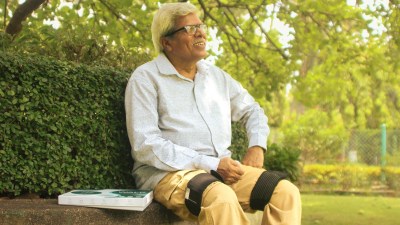Weight matters
No, it8217;s not right that you are overweight and comfortable with it. Thinness is not a reflection of fitness but obesity or excess weight certainly indicates you are unfit and unhealthy

If I understand correctly, recent opinion about weight matters seems to suggest that being lean is passeacute;. Being thin or fat is a matter of choice and, at the end of the day, one needs to be comfortable about the way one looks. It also suggests that successful dieters or those who want to lose weight become obsessive and fret about it. They also seem to suggest that 8220;thin and fat8221; are relative and that there are no standards to determine them. Worse still, that women must sculpture themselves to attract men who desire voluptuous bodies8212;a contradiction of the 8220;be comfortable8221; concept.
To treat weight matters lightly and with complete disregard of its inherent link with health and fitness is erroneous. Those advocating such concepts in the backdrop of global pandemic of obesity are only confusing the public. The concern is more when this is happening in India, where the prevalence of serious diseases like diabetes, heart disease and obesity is expected to be higher than anywhere else in the world.
Perhaps, this comes from the popular and convenient philosophy of the youth8212;8220;Do what you please8221;, 8220;Do what your heart says8221; or 8220;Eat what you want8221;. It would be worthwhile to question the proponents of this 8220;self-indulgent philosophy8221; about responsibility, regulation, duties, and commitment. What about fitness, health and medical opinions?
Let me first clarify emphatically that like quality, fitness is never an accident8212;it has to be worked at and requires life-long commitment, knowledge and above all discipline. There are no short cuts and it can get extremely challenging in today8217;s milieu. With distractions, variety and sharp decline in activity, it can take a lot to remain fit. But if those who have failed to lose weight or have not realized the importance of keeping fit should not confuse it with anorexia.
While it is true that health is a complex interplay of genetics and lifestyle, that diet has a profound role has been clearly established. Also it has been well documented that eating fewer calories is associated with longetivity. Also, unlike the other determinants of health like exercise, stress and environment, diet remains the single most easily modifiable factor in our own control.
Thinness by no means is a reflection of fitness but obesity or overweight is certainly a reflection of being unfit and unhealthy. The only exception to this would be athletes, in whom the weight is not relevant as lean tissue weighs more. Years of research in this area across the world have formulated indices and yardsticks associated with disease risk and weight. Some of these include height for weight, BMI Body Mass Index, WHR Waist Hip Ratio, Body fat percentage etc. Some of the diseases associated with overweight/obesity include cardiovascular disease, diabetes, hypertension, cancer, arthritis, kidney disease etc.
If a thin body also becomes attractive then that8217;s a bonus, but let8217;s not dilute or trivialise a fit body or confuse it with anorexia or an obsession.
The term anorexia unfortunately seems to be used loosely, and more often than not, misused. While anorexia is an eating disorder where an individual has a disturbed body image and starves himself or herself to a point of being skinny, the origin of this condition is psychological. Altered eating behaviour appears to be a symptom or manifestation of deep-rooted psychological imbalance and not the primary cause. In fact, evidence of anorexia has been documented in the 17th and 18th Century where there were no reed-thin models walking the ramp. So let8217;s not confuse matters and mislead people only on personal views and whims.
The message is clear: while it is true that most want to be slim to look good and wear better clothes8212; fitness may be a secondary issue for them8212;to feel comfortable with excess weight is advocating complacency or admitting failure at huge risks.
The writer is a former senior nutritionist at Escorts. She heads the Centre of Dietary Counselling and also runs a health food store. She feels that for complete well-being, one should integrate physical, mental and spiritual health. According to her: 8220;To be healthy should be the ultimate goal for all.8221;
- 01
- 02
- 03
- 04
- 05






























